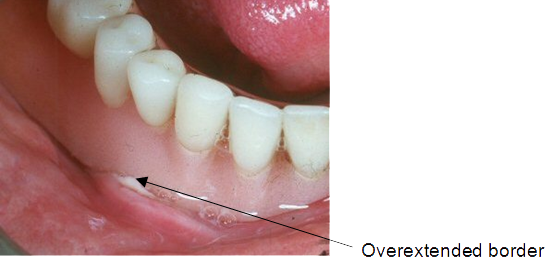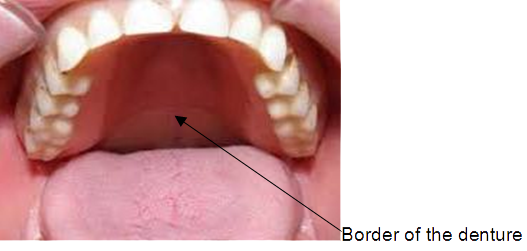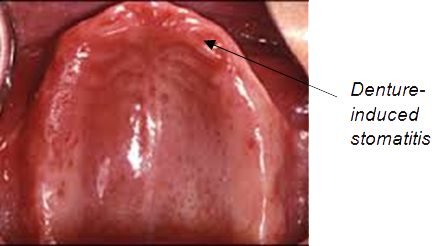Denture
Teeth is for lifetime. However, not many of the people can retain their complete dentition at the elderly age. Some of the contributory reason for early lost maybe related to sugary diet consumption, chocolate fans, taking carbonated drinks as well as tooth lost following traumatic injuries. Teeth are important as it helps us to chew food efficiently, pronounce words intangibly, bringing self-confidence and good looking.
Denture is a prosthesis that is made from plastic or with metal framework to replace missing teeth and its surrounding supporting structures. It helps to restore oral function and can be removed from mouth for cleaning purposes.
Nevertheless, there will always be problems related to denture wearing, and these problems seems to be very prominent among first time wearers.
Pain
The gum overlies the residual bone in the mouth. When denture is seated, these gums will be pushed away and can be seen as blanching. However, if it is hard enough, may cause gum to bleeds and ulcerated. This scenario is commonly associated with overextended borders and very tight dentures.

Loose denture
Wearing dentures for the first time can feel loose, however, after a day or two, the dentures seems to be tightly good. This problem is commonly associated with peripheral base extension of the dentures that supposed to help retaining the dentures in the mouth. Reasons for loose dentures are as follows:
- Denture tooth setting are inharmonic with surrounding tissues in the mouth
- Denture tooth placement is inappropriate
- Uneven denture thickness with very thick or thin margin
- Inadequate denture base extension
It also thought to be associated with surplus overflow of saliva in the mouth. This is because, dentures are regarded as foreign object, and it is a normal physiological body reaction to reject the object from the mouth. One may use denture adhesive to help retaining the dentures in the mouth. However, this is not an advisable to old and very loose dentures. Please read and understand the instructions provided by the manufacturer before using those materials.
Speech difficulty
Speech can be difficult for some denture wearers. Wearing dentures makes one feels mouth fully filled, thus making oral space feels smaller with restricted tongue and palate movement. It is advisable for new wearers to practice talking with dentures on and one will easily learn to adapt well within a short period of time.
Difficulty in chewing
Chewing can be difficult at early stage of wearing. It is advisable to take soft diet and precuts the hard foods before chewing slowly using dentures to keep pain to a minimum. It is also advisable to only chew vertically up and down initially rather than side to side and try to avoid using front teeth to cut food.
Gag reflex
This is likely caused by extended denture base posteriorly far into the soft palate or the acrylic base is too thick, triggering the gag reflex. One need to seek professional advice from your nearest dentist. This posterior extension of the denture base is important as it helps to retain the upper denture.

Saliva
Sometimes there will be an increase in saliva flow as body’s response to new dentures, and this will eventually slows down over a period of time. The brain needs time to adjust and realize that dentures are not food. To keep saliva flow minimal, new denture wearers are advised to take the dentures out for a period of time, and taking small sips of water are also recommended.
Infections related to wearing Dentures
Denture-induced Stomatitis. This is an infection caused by yeast/ fungus, commonly seen in patients who sleeps with the denture on, and also associated with old and dirty dentures. The wearers may not notice these infection because the symptoms are not always obvious. Noticeable symptoms are like presence of red spots on the palate or general mouth redness, especially underneath the upper dentures. It can be treated with medicine and proper denture care.

One may need to remove the dentures and allow your gums to rest. By removing your dentures, you are taking away the irritants and allowing the gums to breathe healthily. Be meticulous about cleaning the dentures. Make sure that every surfaces of your dentures including crevices are well cleaned before putting them into the denture bath for soaking.
Overcoming problems related to wearing denture
There will be a series of bone remodeling after a tooth extraction and this will takes about 3 – 12 weeks for the process to complete. During this healing and bone remodeling period, denture construction is not advisable as tissues still undergoing changes. Early construction of denture will lead to early looseness and its associated problems.
Nevertheless, these problems related to wearing dentures are amendable. One need to seek professional advises and further investigation. Some of the remedies may include denture trimming, selective tooth grinding and rebasing / relining procedures to improve fitting of dentures. Your dentist may advise a new set of dentures when it is no longer fit to repair.
| Last Reviewed | : | 23 August 2019 |
| Writer | : | Dr. Isma Liza bt. Ali |
| Accreditor | : | Dr. Balkis bin Ghazali |
| Reviewer | : | Dr. Roshima bt. Mohd Sharif |







